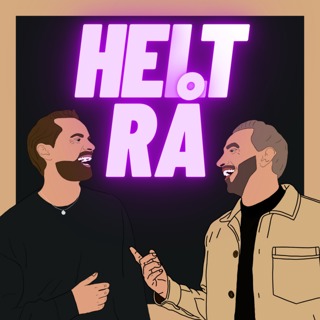
Ep156 - Marcus Samuelsson | The Rise: Black Cooks and the Soul of American Food
Chef Marcus Samuelsson discusses his book The Rise: Black Cooks and the Soul of American Food: A Cookbook. In The Rise, Chef Marcus gathers together an unforgettable feast of food, culture, and history to highlight the diverse deliciousness of Black cooking today. Driven by a desire to fight against bias, reclaim Black culinary traditions, and energize a new generation of cooks, Marcus shares his own journey alongside 150 recipes in honor of dozens of top chefs, writers, and activists—with stories exploring their creativity and influence. For more on Chef Marcus, please visit https://marcussamuelsson.com/ Visit YouTube.com/TalksatGoogle to watch the video.
15 Jun 202150min

Ep155 - Daphne Miller | Farmacology: What Innovative Family Farming Teaches Us About Health and Healing
Daphne Miller talks about her new book Farmacology: What Innovative Family Farming Can Teach Us About Health and Healing. Family physician Daphne Miller long suspected that farming and medicine were intimately linked. Increasingly disillusioned by mainstream medicine's mechanistic approach to healing and fascinated by the farming revolution that is changing the way we think about our relationship to the earth, Miller left her medical office and traveled to seven innovative family farms across the country to better understand the connections between sustainable agriculture and the health of her patients. The product of her adventures is Farmacology: What Innovative Family Farming Can Teach Us About Health and Healing, a compelling new vision for health and healing and a treasure trove of farm-to-body lessons that have immense value in our daily lives. Visit YouTube.com/TalksatGoogle to watch the video.
11 Jun 202153min

Ep154 - Vidit Gujrathi | Chess Grandmaster
Chess Grandmaster Vidit Gujrathi discusses his career and experience playing chess at the highest level. Vidit Gujrathi started playing chess at the age of 7, and has since won 4 National Youth Medals, 4 Asian Youth Silver Medals, and 3 medals in World Youth Championships. In 2006, he achieved the title of International Master after finishing second in the National Chess Championship 2008. He attained the title of ‘Grandmaster’ in January 2013. Since 2015, Vidit has been a prominent member of the Indian Chess Team and has represented India in two World Cups, two World Team championships & three major chess Olympiads. He is the fourth Indian ever to have crossed the Elo rating threshold of 2700 in 2017. Vidit also represented India in various International Grandmaster events, having won 5 of the competitions in Biel, Malmo, Tata Steel, Lake Sevan, and Prague. In August 2020, Vidit was the Captain of the Indian Chess Team that won historic gold at FIDE Online Chess Olympiad. This was the first Gold for India at the Chess Olympiad. He is currently ranked #3 in India, #25 in the world. Moderated by Anand Rangarajan. Visit YouTube.com/TalksatGoogle to watch the video.
8 Jun 202142min

Ep153 - Paul D. Miller aka DJ Spooky | Sound Unbound
Paul D. Miller, aka DJ Spooky, visited Google in 2008 to discuss his book Sound Unbound, his collection and thoughts on how music, art, and literature have blurred the lines between what an artist can do and what a composer can create. In Sound Unbound, Miller asked artists to describe their work and compositional strategies in their own words. These were reports from the front lines on the role of sound and digital media in an information-based society. From August of 2008. Visit YouTube.com/TalksatGoogle to watch the video.
4 Jun 202150min

Ep152 - Gabija Toleikyte | Habits, Behaviors & Change
Dr. Gabija Toleikyte is a neuroscientist, lecturer, and performance and wellbeing coach. She is currently a lecturer in psychology at Sheffield Hallam University. In this talk Dr. Toleikyte discusses "Why the F*ck Can’t I Change", her ground-breaking new book that gets straight to the root cause of why we form certain habits and behaviors, and shows how we can realistically stop ourselves from repeating the same mistakes. Gabija takes us on an eye-opening journey through the extraordinary human brain, exploring how it deals with the everyday changes that we all face. With relatable case studies and practical strategies and tools, she will demonstrate how you can rethink changing habits, productivity, leadership, and decision-making. From Feb. 2021, please enjoy Dr. Gabija Toleikyte | Habits, Behaviors, and Change Visit YouTube.com/TalksatGoogle to watch the video.
1 Jun 202156min

Ep151 - David Graeber | Debt: The First 5,000 Years
While the "national debt" has been the concern du jour of many economists, commentators and politicians, little attention is ever paid to the historical significance of debt. For thousands of years, the struggle between rich and poor has largely taken the form of conflicts between creditors and debtors—of arguments about the rights and wrongs of interest payments, debt peonage, amnesty, repossession, restitution, the sequestering of sheep, the seizing of vineyards, and the selling of debtors' children into slavery. By the same token, for the past five thousand years, popular insurrections have begun the same way: with the ritual destruction of debt records—tablets, papyri, ledgers; whatever form they might have taken in any particular time and place. Enter anthropologist David Graeber's Debt: The First 5,000 Years, which uses these struggles to show that the history of debt is also a history of morality and culture. In the throes of the recent economic crisis, with the very defining institutions of capitalism crumbling, surveys showed that an overwhelming majority of Americans felt that the country's banks should not be rescued—whatever the economic consequences—but that ordinary citizens stuck with bad mortgages should be bailed out. The notion of morality as a matter of paying one's debts runs deeper in the United States than in almost any other country. Beginning with a sharp critique of economics (which since Adam Smith has erroneously argued that all human economies evolved out of barter), Graeber carefully shows that everything from the ancient work of law and religion to human notions like "guilt," "sin," and "redemption," are deeply influenced by ancients debates about credit and debt. It is no accident that debt continues to fuel political debate, from the crippling debt crises that have gripped Greece and Ireland, to our own debate over whether to raise the debt ceiling. Debt, an incredibly captivating narrative spanning 5,000 years, puts these crises into their full context and illuminates one of the thorniest subjects in all of history. ABOUT THE AUTHOR David Graeber teaches anthropology at Goldsmiths College, University of London. He is the author of Towards an Anthropological Theory of Value, Lost People, and Possibilities: Essays on Hierarchy, Rebellion, and Desire. Visit YouTube.com/TalksatGoogle to watch the video.
28 Mai 20211h 23min

Ep150 - Walter Isaacson | The Code Breaker: Jennifer Doudna, Gene Editing, and the Future of the Human Race
Author Walter Isaacson discusses his recent book "The Code Breaker: Jennifer Doudna, Gene Editing, and the Future of the Human Race", a gripping account of how Nobel Prize winner Jennifer Doudna and her colleagues launched a revolution that will allow us to cure diseases, fend off viruses, and have healthier babies. Bestselling author of "Steve Jobs" (2011), "Einstein: His Life and Universe" (2007) and more, Walter Isaacson has established himself as the biographer of creativity, innovation, and genius. Einstein was the genius of the revolution in physics, and Steve Jobs was the genius of the revolution in digital technology. We are now on the cusp of a third revolution in science, a revolution in biochemistry that is capable of curing diseases, fending off viruses, and improving the Human species itself. The genius at the center of his newest book "The Code Breaker" is American biochemist Jennifer Doudna, who is considered one of the prime inventors of CRISPR, a system that can edit DNA. Moderated by Leigh Gallagher. Visit YouTube.com/TalksatGoogle to watch the video.
24 Mai 202158min

Ep149 - Lauren Webber | In Cheap We Trust
Cheap suit. Cheap date. Cheap shot. It's a dirty word, laden with negative meanings. It is also the story of author Lauren Weber's life. As a child, she resented her father for keeping the heat at 50 degrees through the frigid New England winters, and for rarely using his car's turn signals-to keep them from burning out. But as an adult, when she found herself walking 30 blocks to save $2 on subway fare, she realized that she had turned into him. What does it mean to be cheap? When is it mature to stow money away and when is it miserly, or even Scrooge-like? And how might Americans navigate economic downturns in an era when everything seems disposable and when credit has felt dangerously unlimited? In answering these questions, In Cheap We Trust combines a consideration of cheapness as it relates to personality, lifestyle, and philosophy with a colorful ride through the history of thrift in America, from Ben Franklin and his famous maxims to Hetty Green, the 19th-century millionaire named by Guinness as "the world's most miserly person," to the branding of Jews, Chinese, and other ethnic groups as cheap in order to neutralize the economic competition they represented. Weber also explores contemporary expressions and dilemmas of thrift, from Dumpster-diving to Keynes's "Paradox of Thrift" to today's recession-driven enthusiasm for frugal living. Originally recorded in October 2009 as part of the Authors at Google series. Visit YouTube.com/TalksatGoogle to watch the video.
21 Mai 202153min





















